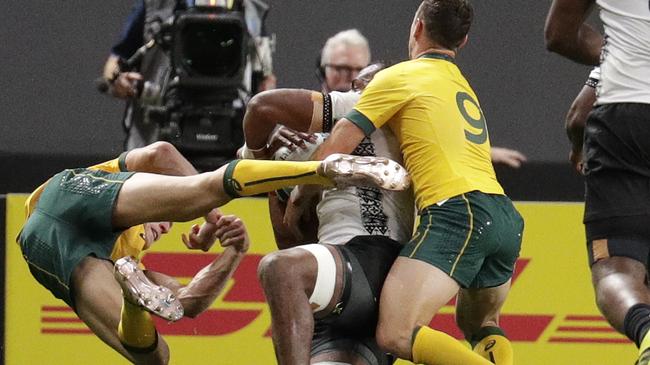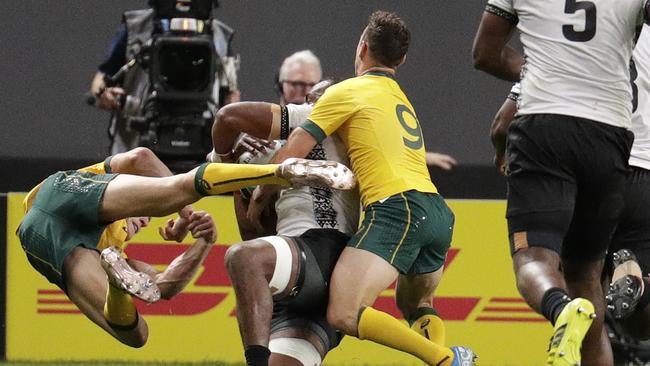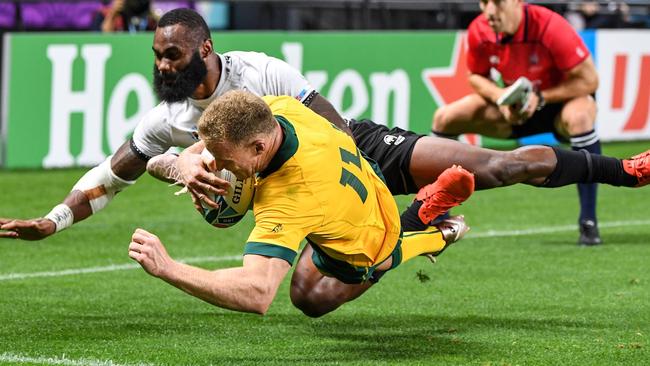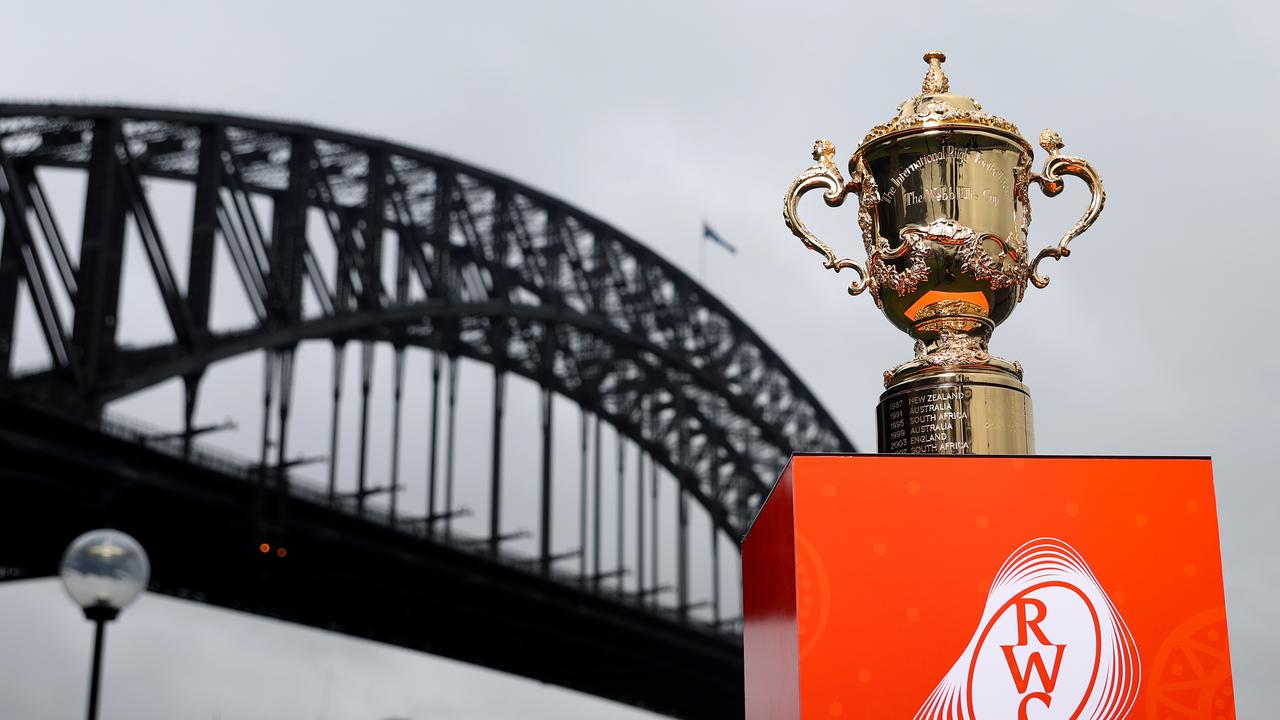Andrew Slack: World Rugby needs to show leniency for unintentional contact
Wallaby winger Reece Hodge was banned because of his inability to dematerialise, writes Andrew Slack.

World Cup
Don't miss out on the headlines from World Cup. Followed categories will be added to My News.
Congratulations to World Rugby for their admirable approach to protection of the head. Everyone agrees with their intention.
All the ruling body now needs to do to truly prove their care and concern for head injuries is to ban attacking players running too aggressively at would-be tacklers, penalise cleaning out at the breakdown, yellow card defenders when they clash heads with their own teammates while trying to make a tackle, and suspend players with poor technique who get their heads in front of the opponent when trying to complete a tackle.
If you think I am reverting to the lowest form of wit, I assure you I am deadly serious, because implementation of the above is the only way to ensure complete safety. It is a body contact sport and as long as the head is connected to the body, there is no surefire way to fully protect it in such pursuits.
Stream the Rugby World Cup 2019 on KAYO SPORTS. Every match Live & On-Demand on your TV, computer, mobile or tablet. Get your 14 day free trial >

That is not to denigrate authorities for doing what may minimise injury occurrence, but there seems to be a lack of feel for the physical realities a player faces in a fast moving, body on body competitive pastime.
In the case of Reece Hodge, as I see it, he has been banned for three weeks for his inability to dematerialise. Circumstances beyond his control put him in a position where he could only react to instinct. The real aggressor was the Fijian ball-carrier, Peceli Yato and it was more his head banging into Hodge’s shoulder than Hodge’s shoulder targeting Yato’s noggin.
If the law says contact with the head is always the fault of the defender, even if unintentional, I have no issue with a penalty, or even a yellow card. But a three week suspension for something that can’t be avoided?

If the same circumstance occurred next week, the exact same thing would happen and there’s nothing World Rugby or a platoon of Workplace Health and Safety experts could do to prevent it. You cannot legislate against instinct and while anything resembling intent should be dealt the most severe punishment, unintentional action must be viewed through a more lenient lens.
So even if some consider their strategy to limit head injuries as slightly flawed, World Rugby can only be praised for trying to do the right thing. However, the ruling body should be roundly condemned for their public comments criticising the performances of their referees thus far in the tournament. There is not a living soul who doesn’t whinge about referees and their decisions, so they hardly need their employers to join the chorus.
Coaches of teams might deliver a few home truths behind closed doors to out of form players but to publicly embarrass them is a no-go zone.
Ironically, the comments I’ve heard from the average punter over the first week of the World Cup have been how well the games have been refereed and that there has been an uncommon amount of common sense in the decision making. It’s not yet the pointy end of things so they might cop a bit from supporters as the stakes become higher, but for their own bosses to give them, what amounted to a public dressing down, was pathetic.
As for this evening’s Wallabies match against Wales, I’m not sure it matters much in the big picture. Both sides will reach the quarter finals and second guessing who you might meet by winning or losing today is a waste of time.
The real action starts in the quarters and if the Wallabies don’t find a world class goal kicker and a settled backline it could be a short knock out phase.


